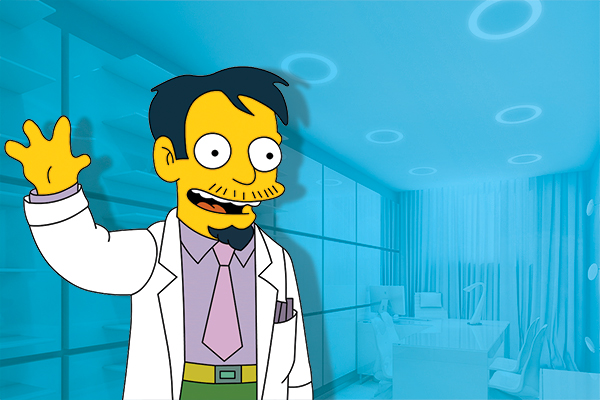Hi Dr. Nick | Issue 09
Feeling sick
I want you to picture two healthy new-born babies; all cute and pudgy and covered in blood and poo, because birth is messy like that. For simplicity’s sake, let’s call them Baby A and Baby B. For complexity’s sake, let’s turn Critic upside-down and try to read the rest of this column standing on our heads.
A bit about Babies A and B to help your mental image: both babies are male, both have a loving family, both were born vaginally at term, neither had any perinatal complications, and both are so adorable it’s like Pixar designed them. They’re like two peas in a bag of frozen peas, because who really buys podded peas anymore?
Now the morbid part: with one change to our vignette we can cut eight years off one of those cute balls of fat’s lives. Instead of calling them Baby A and Baby B, let’s call them Aronui and Blake.
Almost any medical student can rattle off the fact that Maori have a life expectancy eight years shorter than non-Maori. It’s one of those things you get used to vomiting onto your answer sheet during exams. Every year the number eight gets scribbled in blue biro across a couple hundred medical exam papers and people move on.
In the words of a girl telling her partner not to let go of the ringing Samsung mobile being inserted into her vagina: hold the fucking phone.
How is that a fact? How can we metaphorically regurgitate that number onto a page without physically feeling sick? We have two babies being born into the world at the same time and one of them consistently gets eight years less because of how they differentially experience things? That’s revolting. How is it that our profession, our society, our nation, doesn’t feel ashamed of this? How is that just a fact of life?
Listen to others and you’ll hear every excuse in the book for the difference: “they are genetically predisposed,” “they drink and smoke themselves to death,” “they never go to the doctor,” “they’re poor,” “they’re violent,” “they’re [derogatory stereotype here].”
Truth be told, it’s our fault. Not in an “us versus them” manner, but in a collective “everybody reading this” manner. Through our collective actions, society doesn’t resemble anything close to a level playing field – it’s a match being played on the side of a mountain, with the wind and sun pitted against the home team.
Throughout Aronui’s life he’ll be subjected to pressures that Blake won’t because of his heritage. Society’s previous actions will have crippled his inherited wealth and knowledge, and society’s current actions will cripple his sense of self and his opportunities in life. Colonisation, migration, racism, and marginalisation mean his life will be harder and shorter, whether Aronui is conscious to it or not. There’s piles of evidence that describe the problem, but we walk through life with our fingers in our ears saying, “it’s their fault.”
We all need to change. We all need to recognise that we’re perpetually dropping the ball. We need to realise that jokes around Maori stereotypes do damage, understand that complaining that the use of Te Reo is “PC gone mad” belittles an entire culture, recognise that “preferential” treatment and admission to things like medicine are redressing the balance. Most importantly, we need to realise that things like Maori smoking aren’t “their fault,” but a reflection of a whole host of problems with society that began long before Baby A and Baby B came into the world crying and covered in poo.
He aha te mea nui o te ao? He tangata! He tangata! He tangata!






